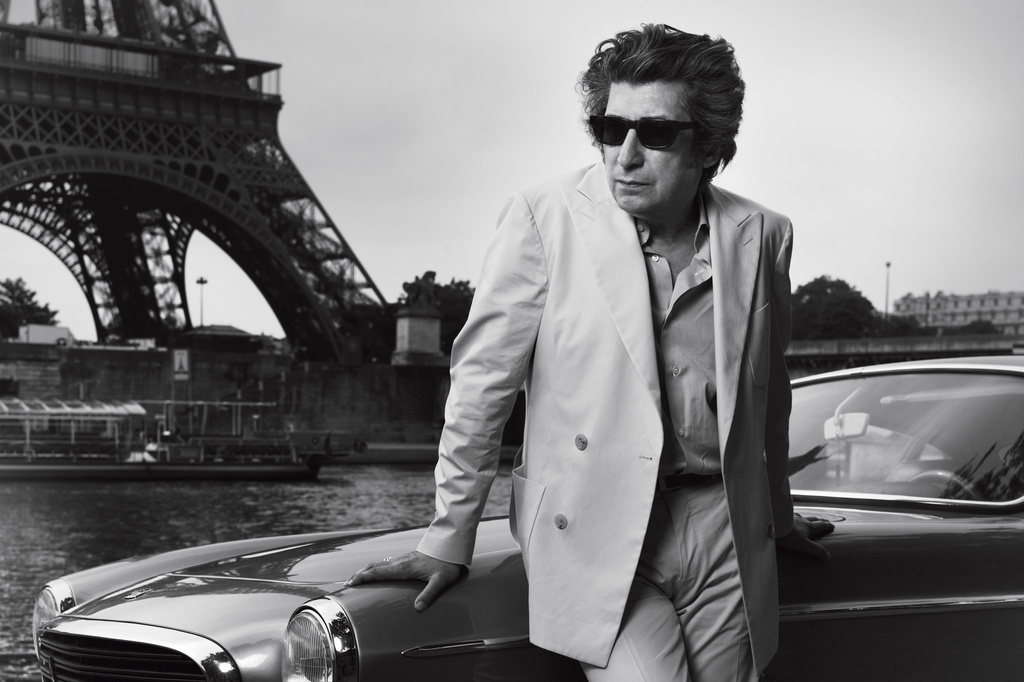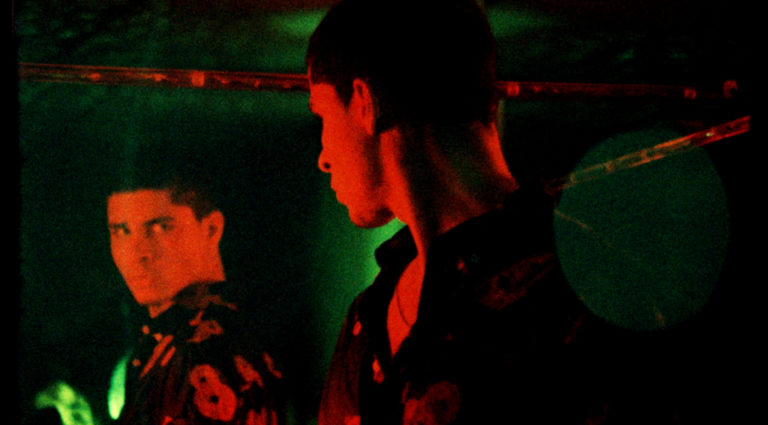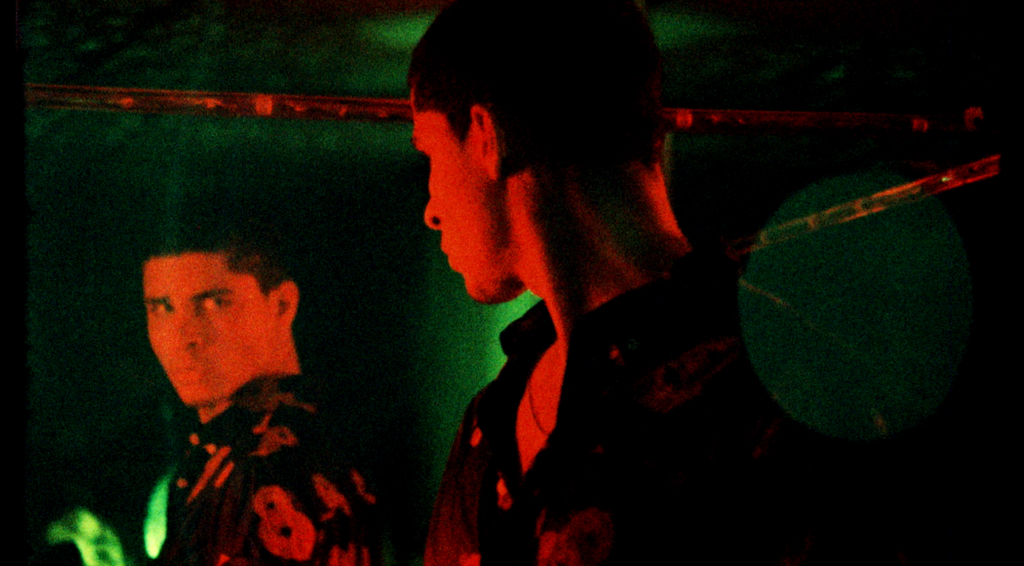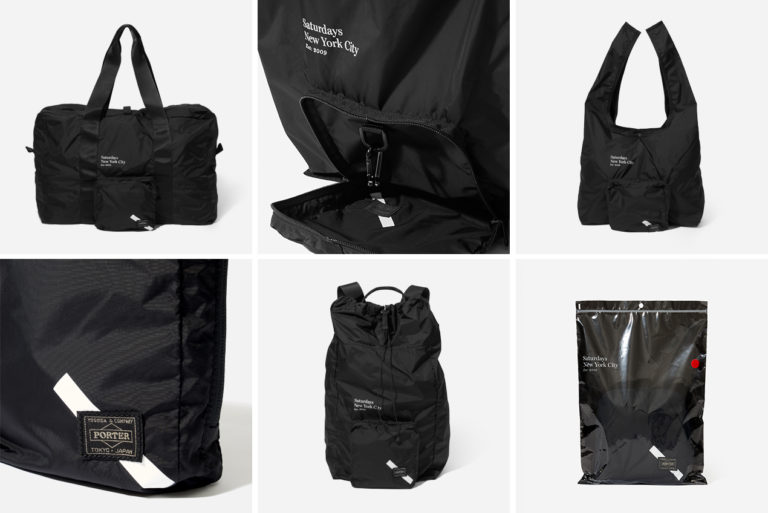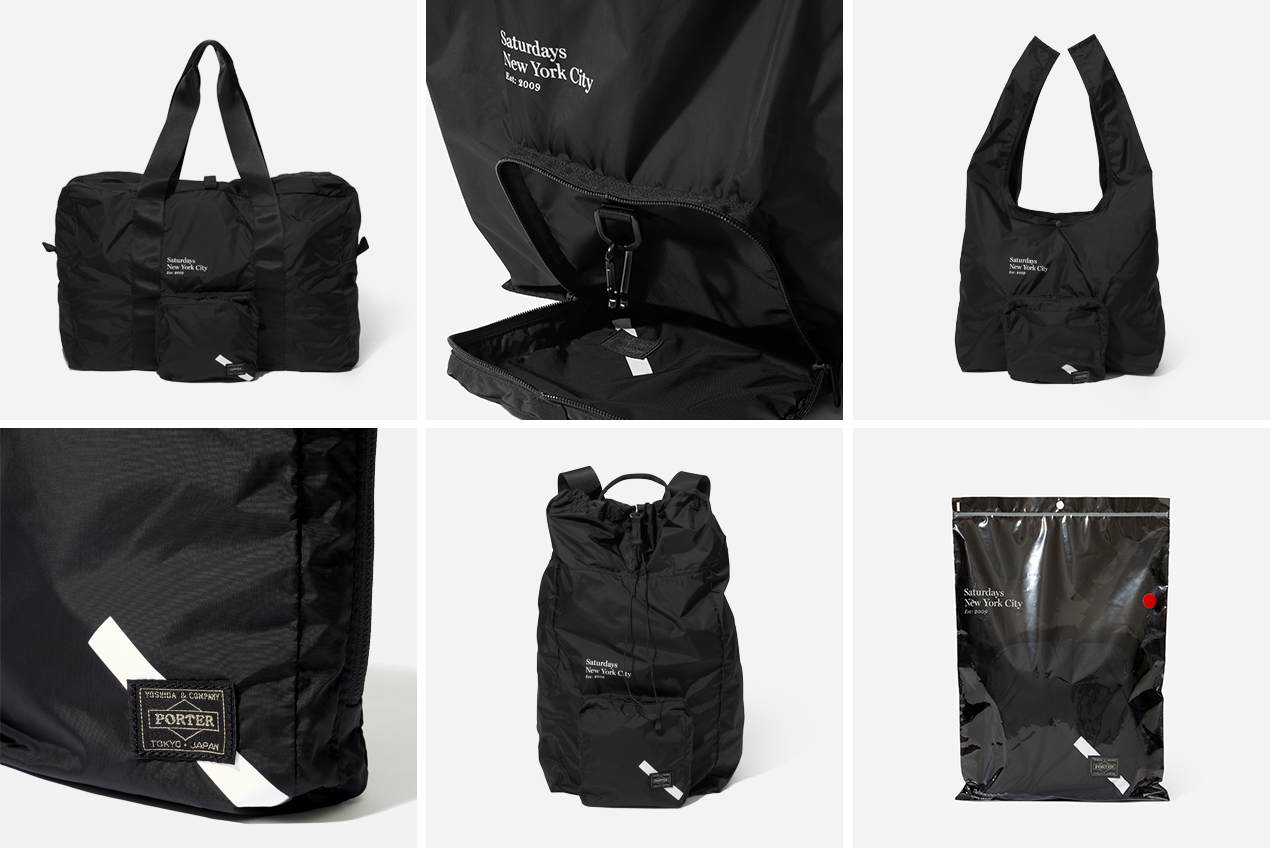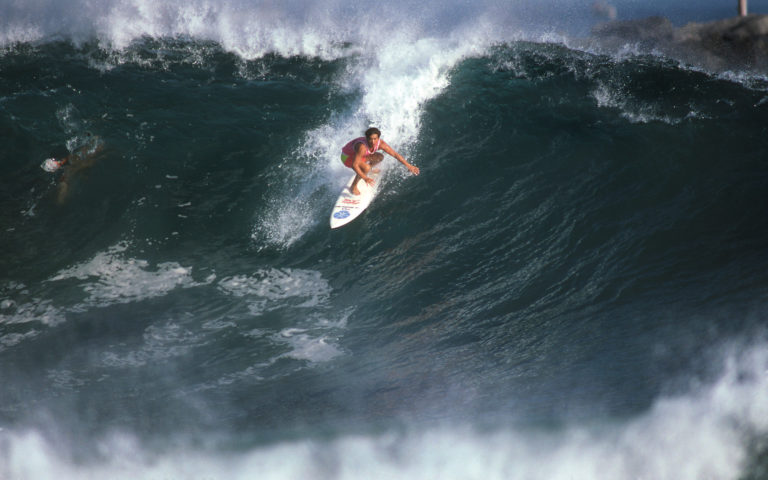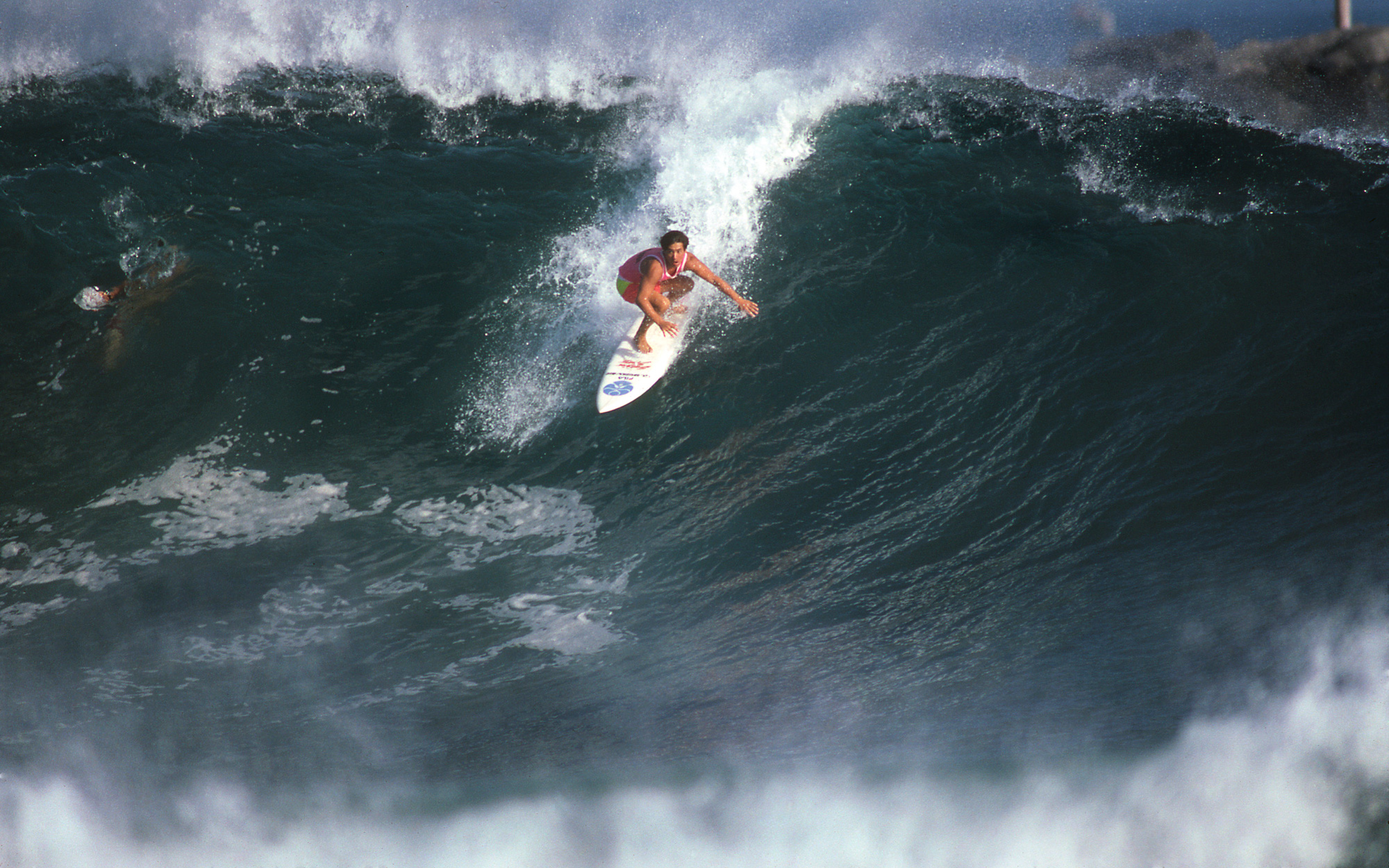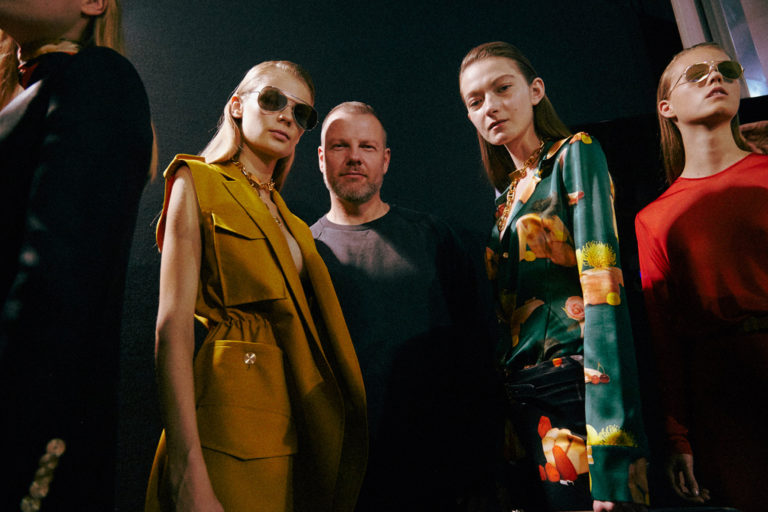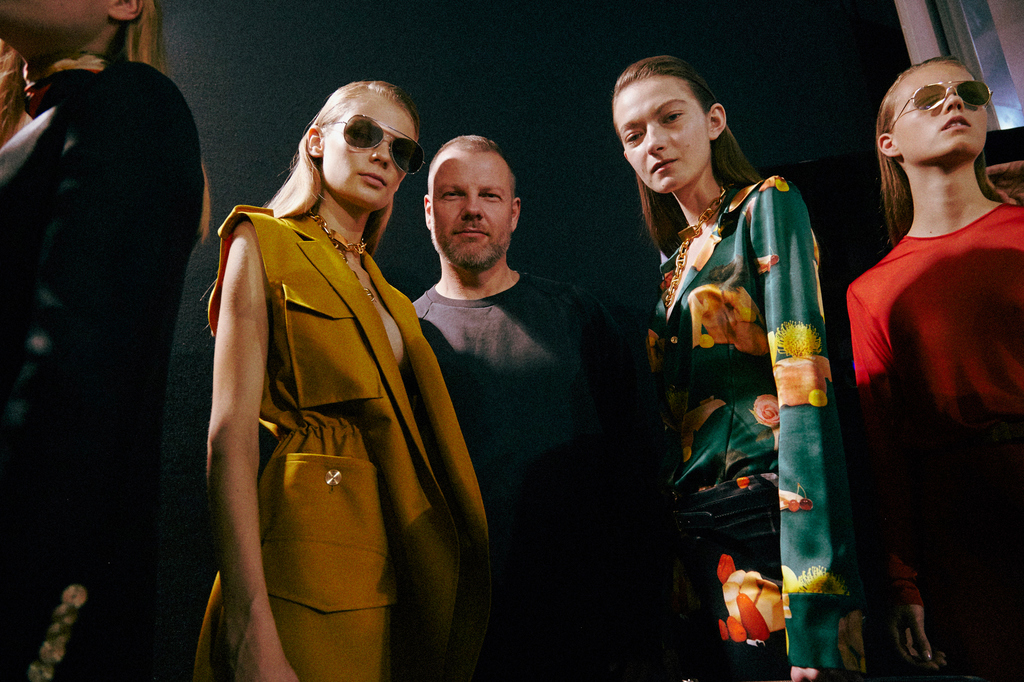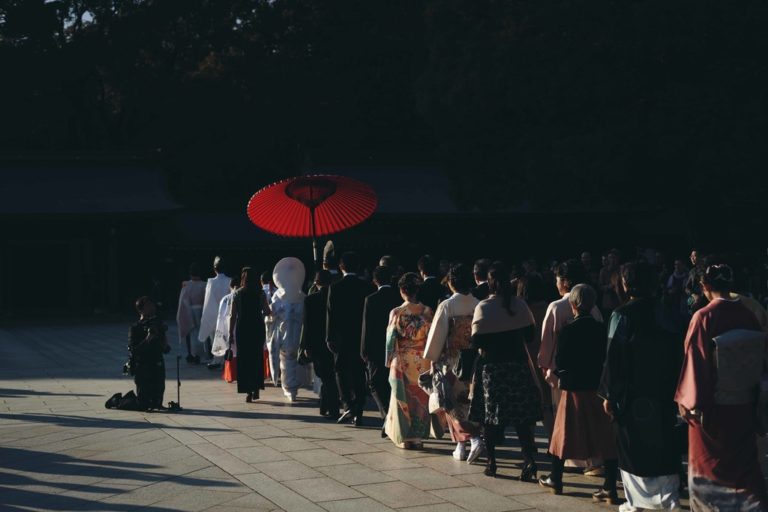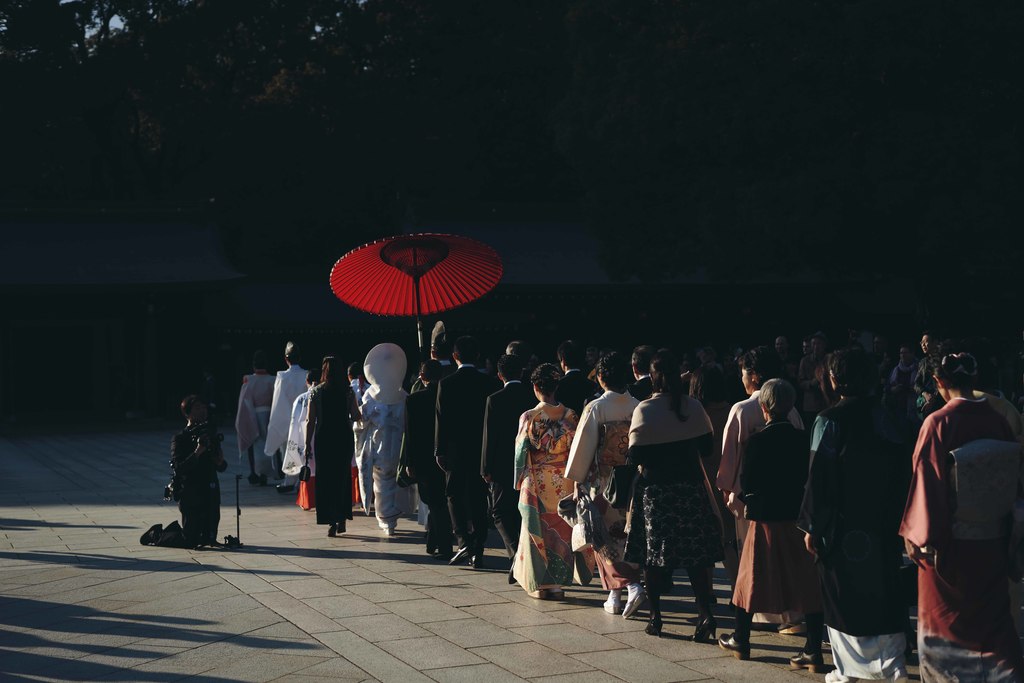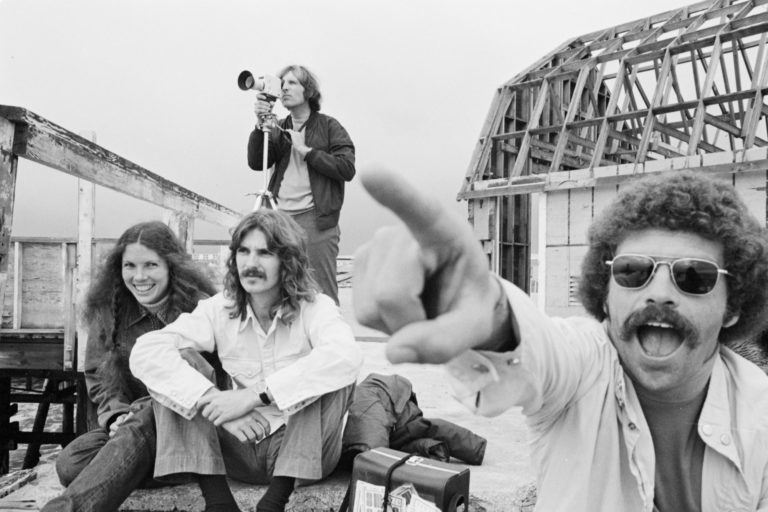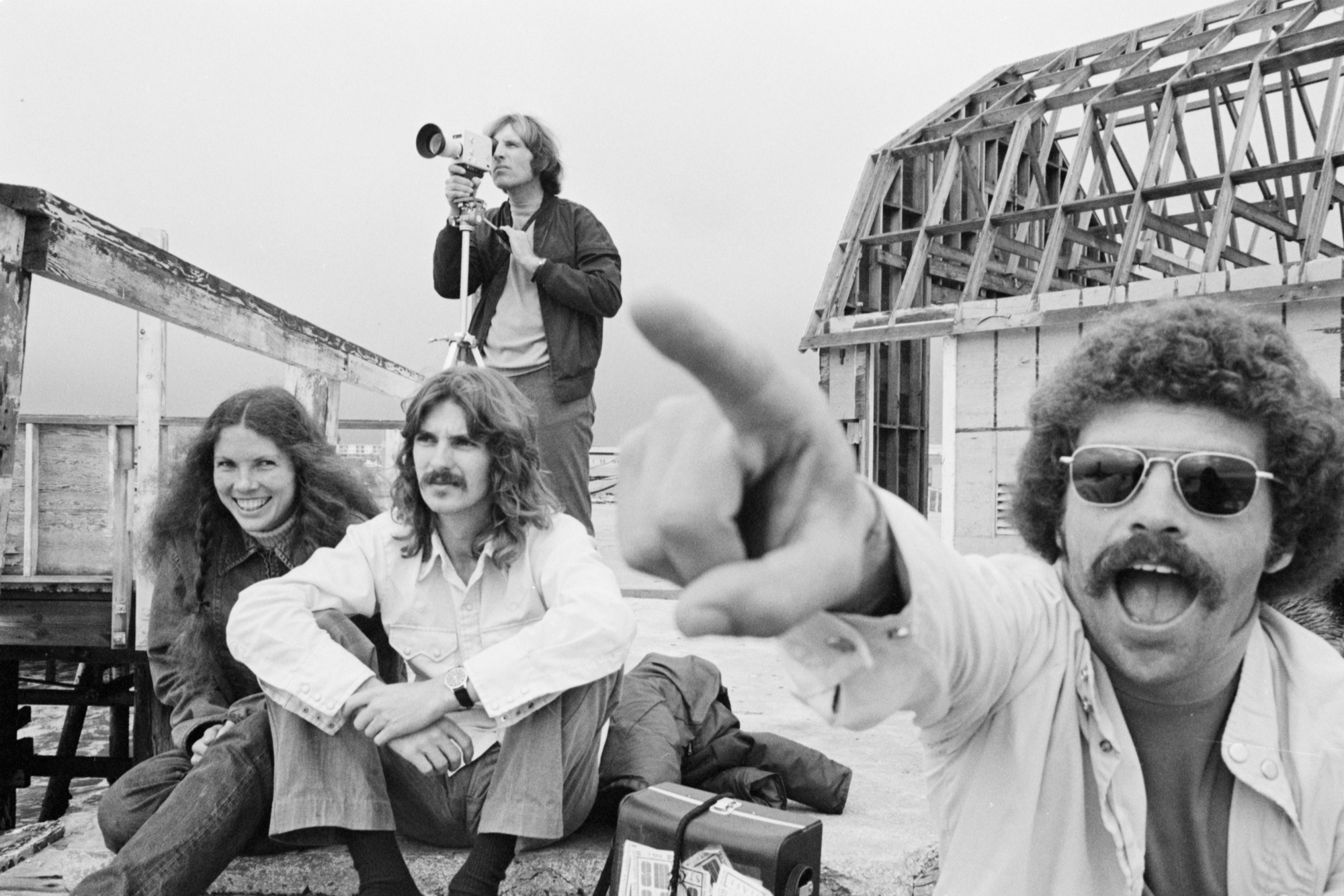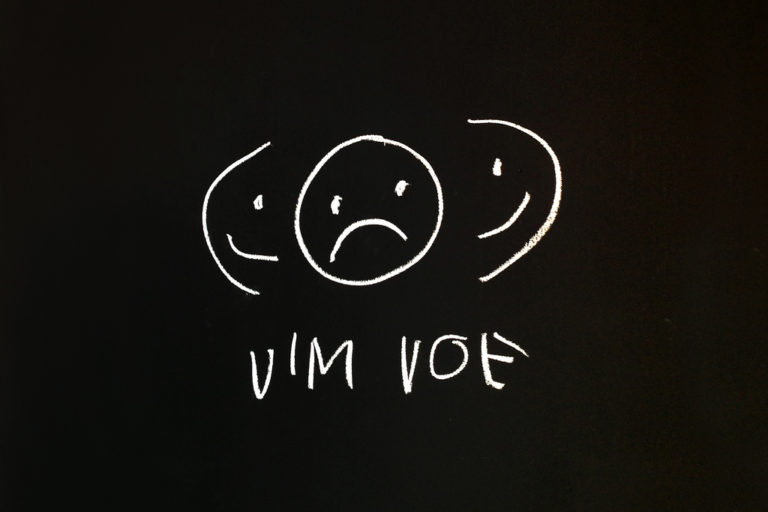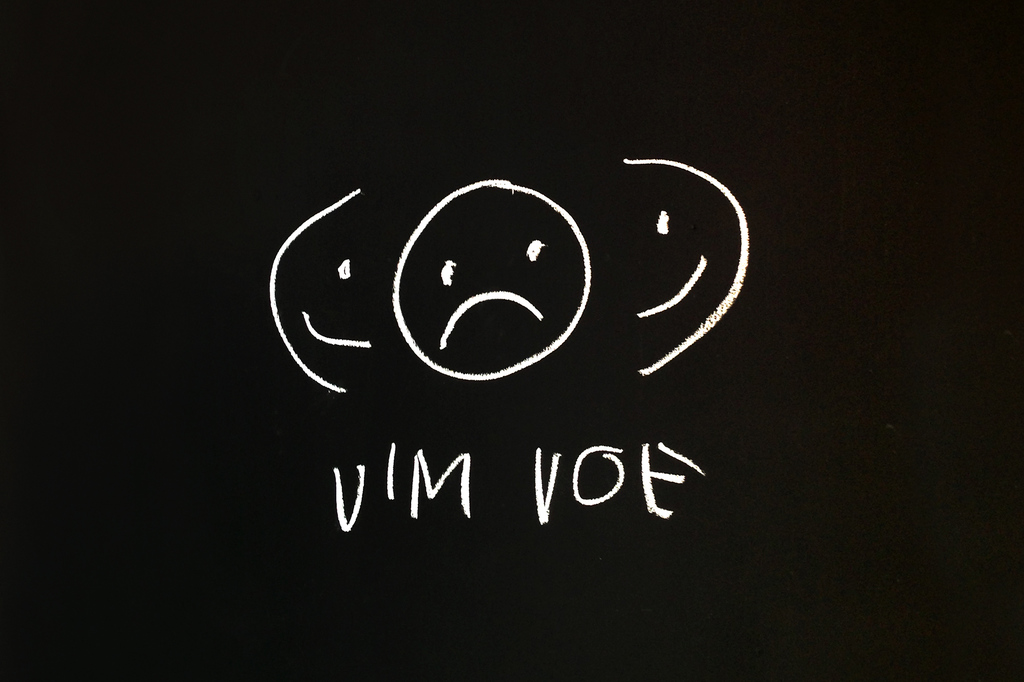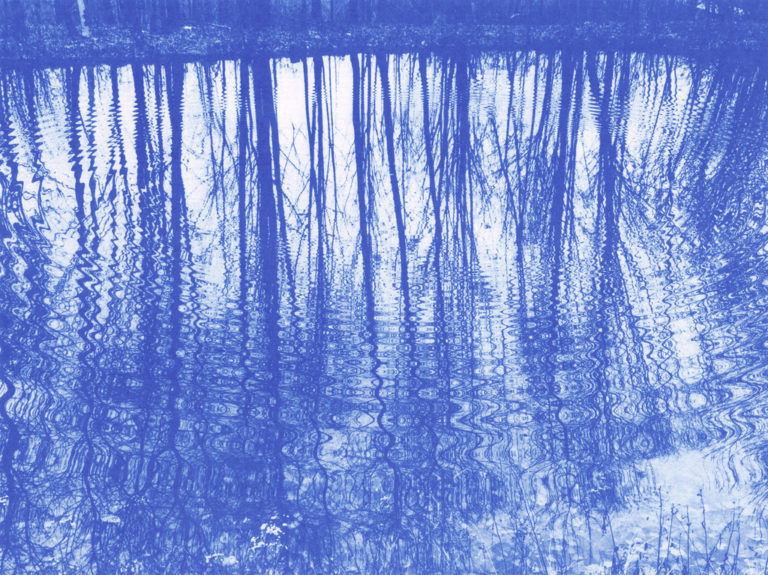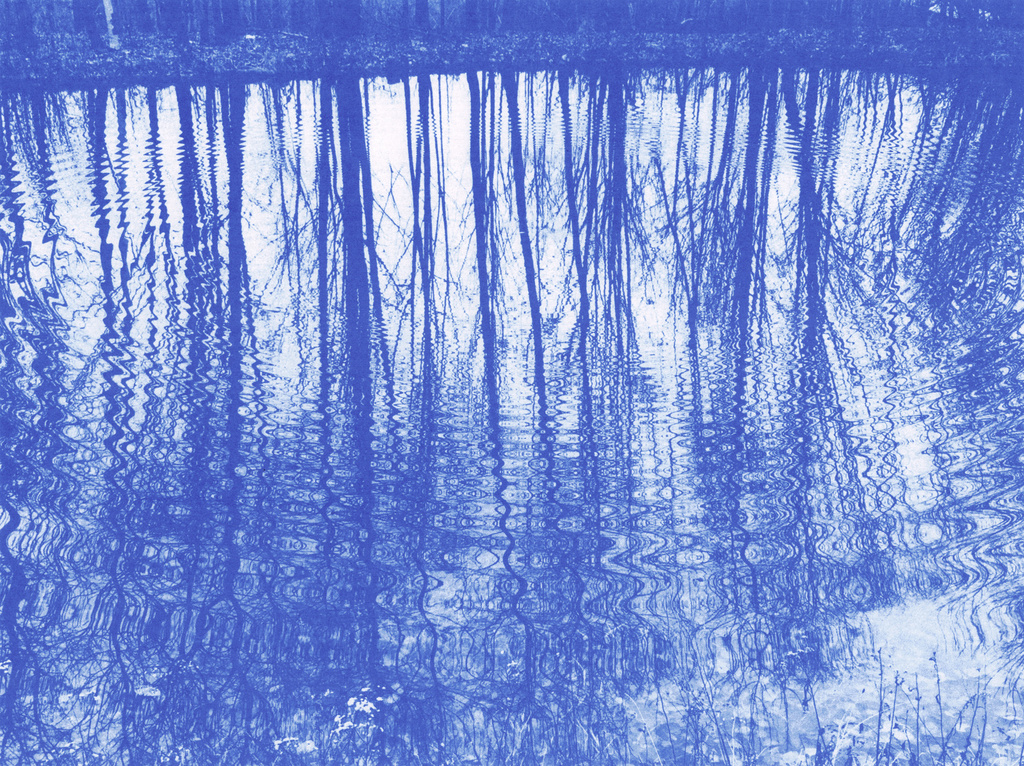colin tunstall: Tell us about your experiences with surfing.
gene krell: A lot of surfing is remarkably mean-spirited. When I was surfing in California—and believe me I’m not waiting with baited breath for my invitation to The Eddie—the guys were cool with me. I’ve got arthritis in my knees and I broke my back surfing. I didn’t really know what it was like because I was so protected. They called me Uncle, you know? Here’s a Jewish Italian from Brooklyn. A guy like Danny Fuller even calls me Uncle. It really underscores the relationship I have with these kids. I say kids because I am by far their senior. I would surf down either at Diamond Head or Pops. Actually I’m not that bad. I just get kind of nervous. I went out on my own once. It ended terribly, I have to say. I don’t know where everyone else was. They were at some surf meet or something. I really learned what it’s like. I’m out there by myself and some guy comes up to me saying, “You never turn your back on a fucking wave, man,” and all that. I told the guy, “I’m 62. Lighten up bro! I wanna see where you’re at when you’re my age.” That’s what it was like. I said to the guy, “Where’s the Aloha man?” My whole back is covered in Hawaiian and Buddhist tattoos. I’m Haole, of course, but I respect the culture. I said to the guy, “I’m more Hawaiian than you are bro.”
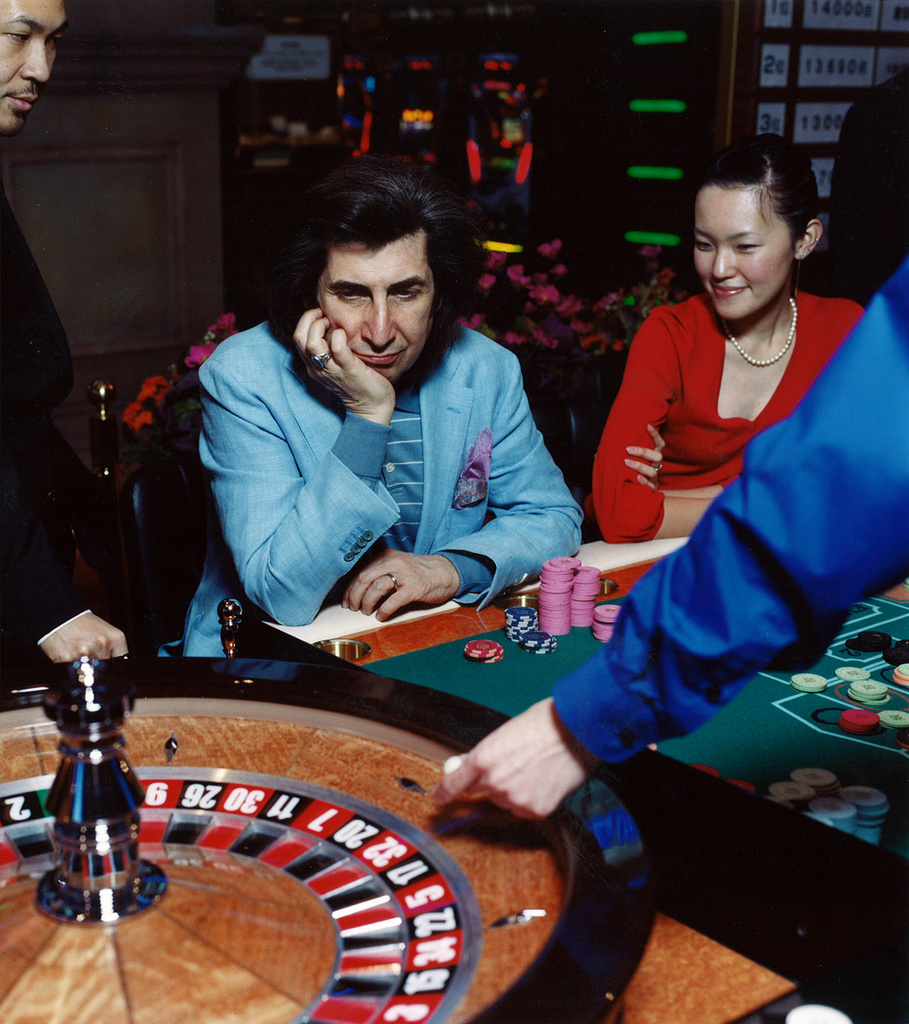
ct: How did he react?
gk: Of course he was incensed by it, but the other guys were okay with me after that. What if I had been some old guy from Wisconsin? To me surfing is all about this notion: I have something special and I’d like to share it with you. I didn’t sense any of that. Afterwards when the fellas, including Mark Healey, had returned, they came over. Mark’s a wonderful fella. They came down like a wolf pack to my hotel. They hated that I was staying there. “What are you doing here? Come stay with us,” they said. But the hotel was convenient since I was writing the story. A week later my board went missing. It was trashed. I knew what it was all about. Of course, I never revealed it to anyone. The last thing I wanted to do was to start another West Side Story, particularly with these guys. I’m a kid from Brownsville, Brooklyn. I know how this goes down. I said to my wife, “Let’s just check out.” We went back to Maui. Oscar Wilde said, “Nothing in this world is meaningless.” It had meaning to me that what I said to the guys in the water was true. I believe what I said to those guys. I am more Hawaiian than they will ever be. Our culture is informed by the way Hawaiian people fought, and the way they were denied. There are scores of books that deal with this. It was sort of like the Catholic Church, the level of hypocrisy is fairly remarkable. Politicians create their own language. We don’t have that privilege. They can say, “I was taken out of context.” We don’t have that kind of advantage where we can colorize speech that way. We’re denied that. We’re culpable for our actions. Politicians have liberated themselves from that.
ct: How does that inform your philosophy?
gk: Americans and British can be so sanctimonious. I’m Buddhist, and we don’t believe in ego or pride. Pride is this self-congratulatory thing, the idea of, “I’m too proud to apologize for kicking your ass.” It creates a barrier. Huxley said, “There’s no such thing as progress. Progress is the rate we use up the world and its cultures.” It’s probably more relevant now than when he spoke those prophetic words. I’m a devotee to the Tao Te Ching. Lao Tzu said the most significant thing, “We’re all but guests here.” I saw that and I didn’t have to read anymore. Your time on this planet is so limited. I’m 66, man. I don’t know how old you guys are. What are you in your 20’s? I can remember very vividly when I was your age. I don’t remember being 66. I don’t remember any of that. I don’t care whom you speak to. They’re shooting you through the grease. It seems like it was yesterday that I was doing a split on the dance floor. I wouldn’t attempt that now. Lao Tzu’s words for me were really profound because you’re here for such a short time. Why do you wanna mess with people? Why do you want to be cruel to people? Why do you want to mess with the planet? All of those things raise such enormous questions. You have to live your life without purpose. You have to have no other purpose in your life other than to live it.
My whole back is covered in Hawaiian and Buddhist tattoos. I’m Haole, of course, but I respect the culture.
ct: Where did the urge to travel come from?
gk: I was always interested in art. I inherited that from my mom. My father and my brother were real Mafioso. My father was a police officer, tough as nails. My brother was hardcore all the way. He carried a gun. My mother was the contrast of that. She never had more than a third-grade education but she could quote Proust. She was a remarkable woman. There was a turning point in my childhood. We had a fresh air program. Inner-city kids were taken to the country for a couple of weeks to a farm. I met a Rabbi there. He had a tremendous influence on my life. I was maybe eleven or twelve years old. He took me to Woodstock. This was the late ‘50s. I met this artist there. He had hair down to there, and I had never met a character like him before. He was so liberated. I thought to myself that this is how I want to lead my life.
ct: How did that change things for you?
gk: I went back to the city, and I started to make friends. It was the early ‘60s. I began to really broaden my perspective of art and what the world had to offer. I saw the world was bigger than Brooklyn and bigger than me. I was still very young, but I managed to get into clubs and things. Then I was invited to England. The song, “Hey Gene Krell,” is about my experiences in England. The Small Faces and Billy Nicholls sang it. There was a little shop in London called Granny’s, and we started to make clothes for music groups. I researched everything and I found the people who actually did the rhinestoning and embroidering for the queen. They were accessible! I just picked up the phone. From there, the shop became very celebrated. It was kind of a hippie shop before I bought it. Then we changed the dynamic considerably. I think the story that most people tell is that I was with Jimi Hendrix, assigning his new stage clothes, the day before he died.
ct: Amazing.
gk: I’m often accused of being remarkably negative and I think there’s a mythology about that. It’s fallacious, because it really has to do with standards. I was very privileged. I came from a time when the idea was to express your individuality at all costs. There was nothing really cool at that time. It was counter-intuitive—we didn’t think anything was cool. When I had Granny’s and we made ready-to-wear suits, this one guy wanted us to make a suit out of his drapes. I said to him, “Well first we have to dry-clean them. Then we’ll take it from there.” That kind of tailoring doesn’t really exist anymore except maybe with these Italian tailors in New York, but you’ll have to spend ten grand. Granny’s became the domain of the spoon-fed, bourgeois dilettantes.
ct: Why do you think it was so successful?
gk: Initially in London, it was all about this wonderful idea that you had a voice. People still have that kind of voice, but they fail to utilize it. I think that’s the tragedy. When you think that Athens had a population of 30,000, and produced the world’s greatest thinkers, that really expresses the idea more poignantly than I ever could. I was offered a blank check to reopen Granny’s. I had the check and I said, “I would if I could, but Granny’s was a time, not a place.” I remember the characters we would have coming in, “Yo mate! I want a pair of boots with flying cocks!” We’d say, “Okay, what color would you like?” I thought to myself, “Was I really having this conversation?” The world now revolves around a social imperative, not a creative one. It’s not what you see—it’s whom you see. It’s a media feeding frenzy that makes stars out of people like Julian Schnabel. I hold no malice towards any of them. I just don’t think he’s a particularly good painter. Because society is so homogenized and so accessible, it really diminishes creativity. Fashion or style was always born out of culture. It was never born out of design. The punk thing they were having, I failed to understand at the time. The last thing that Malcolm (McLaren) said to me was, “I never want to end up a museum piece.” Well, guess what! He’s a museum piece
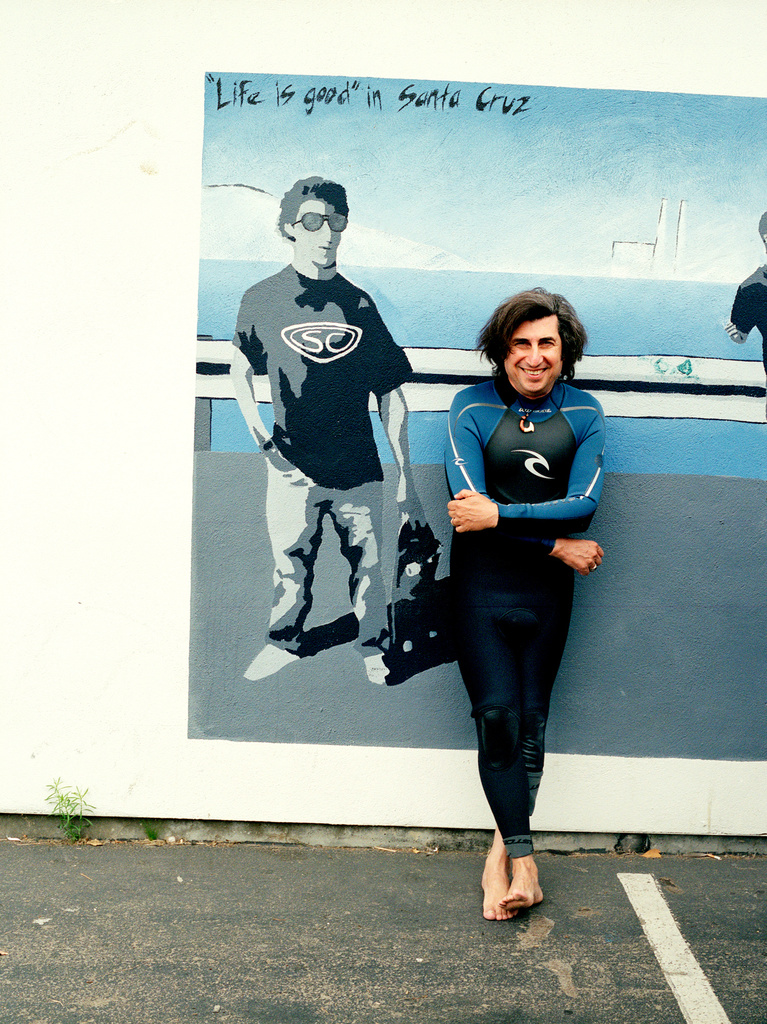
ct: So you went from New York to London, and how did you start getting in the water?
gk: Well, my first time near the beach was in Brazil. But I don’t think I ever caught a wave there. I’d just sort of paddle around and hang out. I decided to abdicate everything in my life and just live on the beach in Brazil. I lived in a house, which was owned by a gunrunner—unbeknownst to me. I didn’t know what the guy did. He was a German industrialist.
ct: So what drew you to surfing culture?
gk: Well, I can surf the same waters as Joel Tudor. I was so drawn to that idea, that it’s a very solitary experience. It’s you, your board and the water. You develop this relationship with your board. Some people name them. No one has a relationship with their tennis racket or with their golf clubs. Your board is like your girlfriend. You wouldn’t call your board your bitch, though. You’d call your girlfriend your bitch. You know what I mean? There’s a kind of respect that surfers have for their boards. Also with surfing, you’re part of a broader picture. You’re part of a community where you give people the shaka. That’s what really drew me to the notion of surfing. I understand how the system can be perverted, too. Like the Internet, it can be used in a celebratory way or by people like pornographers or hate groups. But with surfing, you can connect with nature in such a wonderful and intimate way. It provides these golden moments that you find nowhere else.
ct: When was the last time you surfed?
gk: I haven’t surfed in years. To be honest with you, it got very, very difficult for me. What happened was that, through no fault of my own, I was getting a reputation. It was created by association. I knew some of the world’s best surfers, like Kelly Slater and Jamie Brisick. If I would go out, people would call me up and ask me my surf stories. They’d ask, “What was it like being in Morocco? What were your surf adventures like?” I had had none of those.
ct: Do you ever surf in Japan?
gk: I surf out at Chigasaki.
ct: And what are the main differences between surfing other places and in Japan?
gk: In France, people love to engage you. They say, “Wow you’re 65 and you’re still in the water. How cool bro.” I get more of that than anything. I’m trying to give you the full gamut of my experiences. If you know a good restaurant at a cheap price, it seems natural that you want to turn people on to it. That was why initially I was interested in writing about surfing and moreover the culture. I remain engrossed to this day. Maybe I have my critics—I don’t know. The way that I respond is by relating the fact that it’s the culture that I’m talking about. What’s imperative for me is that people understand the culture, and know why you surf as opposed to how you surf. People have this anticipation that they’re gonna get out there and be able to compete with the best. It’s foolhardy and fallacious. It’s the intimacy that I was so drawn to. I still am.
I go back to the learned scholar Lao Tzu, ‘We are but guests here.’ This isn’t a permanent gig.
ct: And you practice Buddhism?
gk: I’ve been a practicing Buddhist. I was ordained as a Jodo Shin, which is basically the Japanese segment of Buddhism. True Buddhism says, “The ocean is wide and deep. When you put your finger in, it always tastes of salt.” I don’t have any kind of affiliation now. I just think of the teachings, now, and of the passion. And I’ve always been fascinated with the soft martial arts, for my health. I was a recovering alcoholic and heroin addict. You always hear about these extremes, like people who discover Jesus. It wasn’t really like that with me. It just seemed a very natural fit. They say here, “You’re born a Buddhist. You get married a Christian. You live your life as a Shinto. You die a Buddhist.”
ct: How does Buddhism influence you as a surfer?
gk: You know, no one really thinks when surfing. You can’t, because you’d think, “Who the hell could do this? Look at this freaking wave man!” You just kind of have to go with it. After all of these years practicing Buddhism, it’s just so natural. The Dahli Lama said that Buddhism is about the idea of compassion. Surfing is my religion. In some small and maybe insignificant way, those dots are connected. The problem with organized religion is that it plays more to the supernatural than it does to our humanity. Jefferson, he believed in Jesus, but he never believed that Jesus was the son of God. That wasn’t what was terribly vital and important to him. It was Jesus’ humanity. Whether Jesus walked on water or turned water into wine, to me, that’s not what left its greatest mark. What left the greatest impression was Jesus’ humanity. I think we play up the supernatural because we have to convince the followers that there’s something greater in store for us. That’s always the bane of theology. They promote this idea that there is a greater fate awaiting us. Fra Angelico thought it was ludicrous to think of heaven and hell as our reward. It was really about how we lived our lives here. You can’t have this kind of duplicity in life.
ct: So, how would you summarize your life philosophy?
gk: I have the a tattoo on my back that says, “Though he may conquer a thousand warriors, a thousand times, it is the warrior who conquers himself who remains the victim.” In this life it’s all about exorcising your demons and coming to terms with who you are and being able to express that to people in very genuine terms—without regard for consequence. I try to live my life that way. I’ve taken a lot of lumps. I’ve had my nose broken five times. That wasn’t by accident. You have to live your life without purpose, without any intent whatsoever. The worse thing we can do is set standards and goals for ourselves. I go back to the learned scholar, Lao Tzu, “We are but guests here.” This isn’t a permanent gig.■
